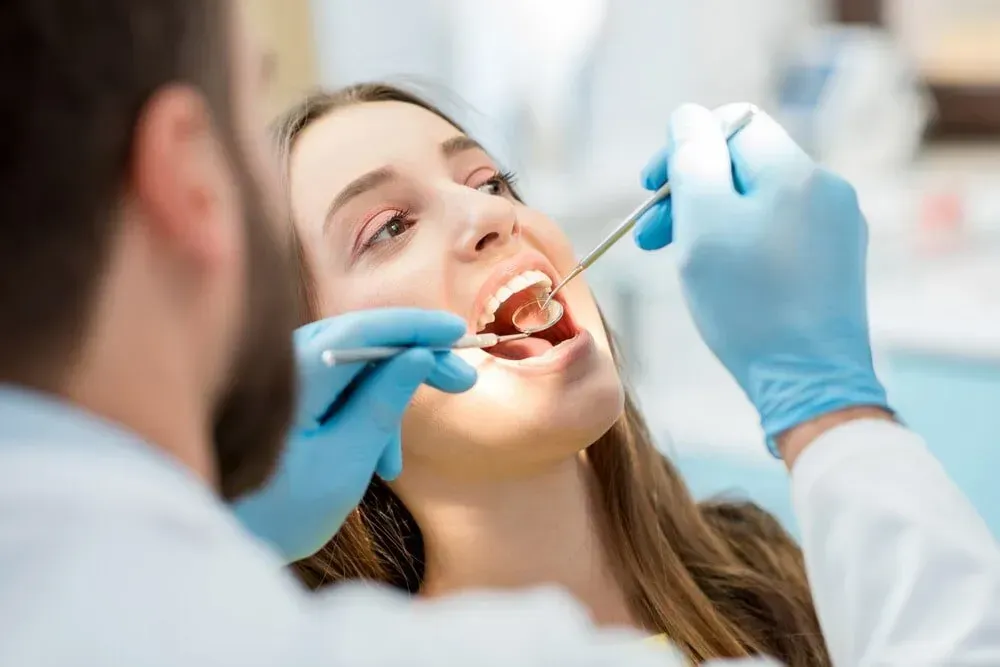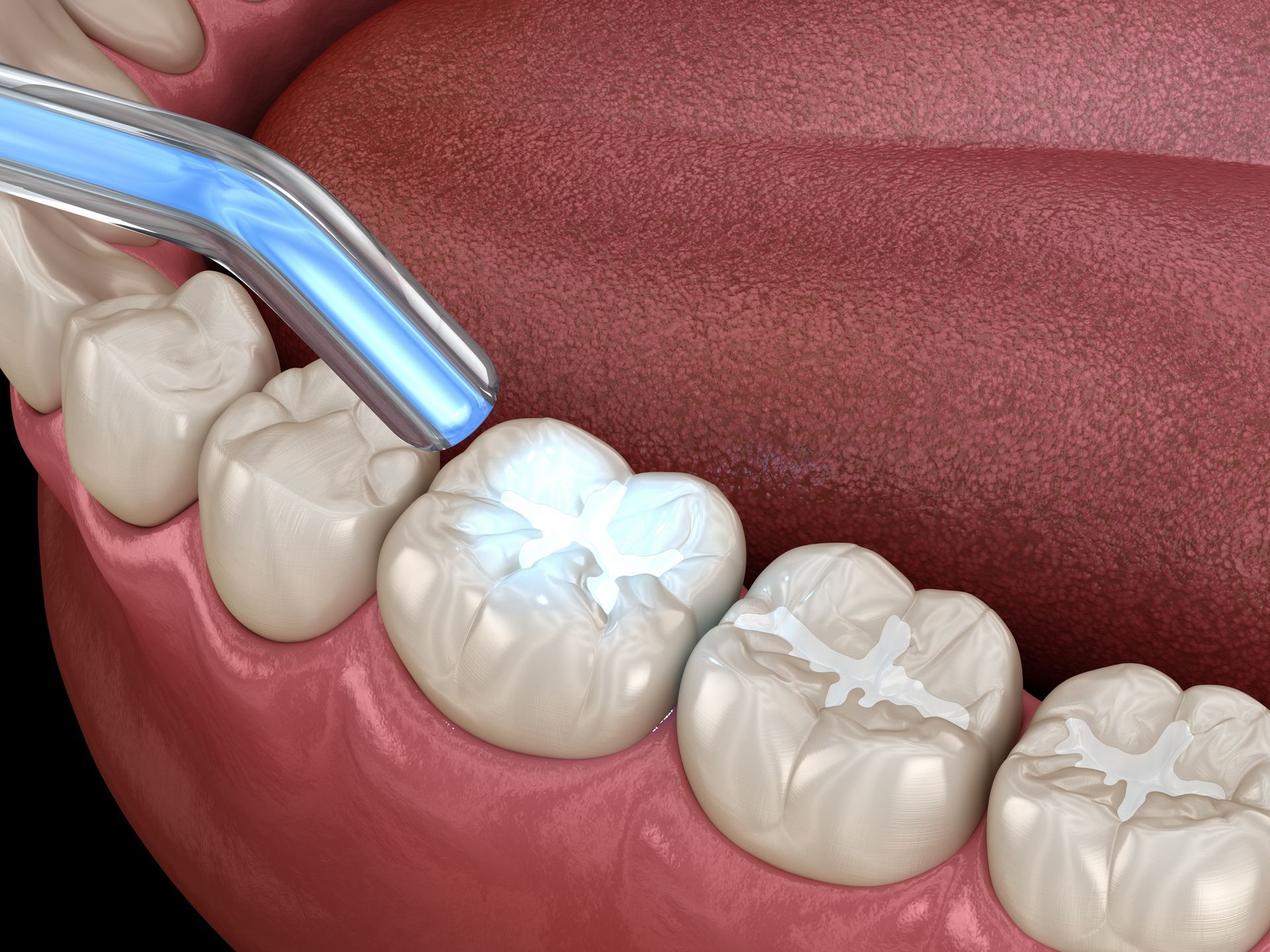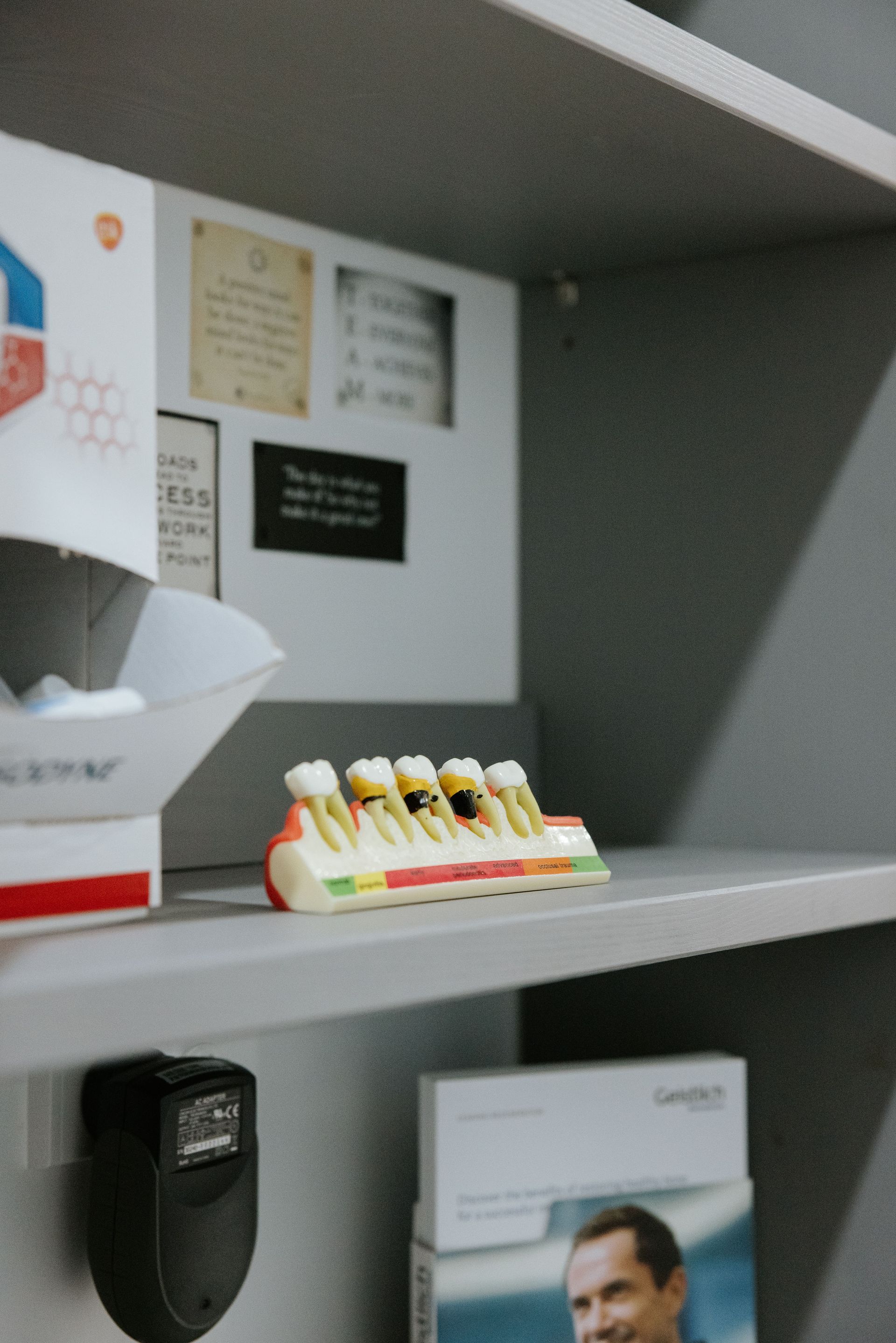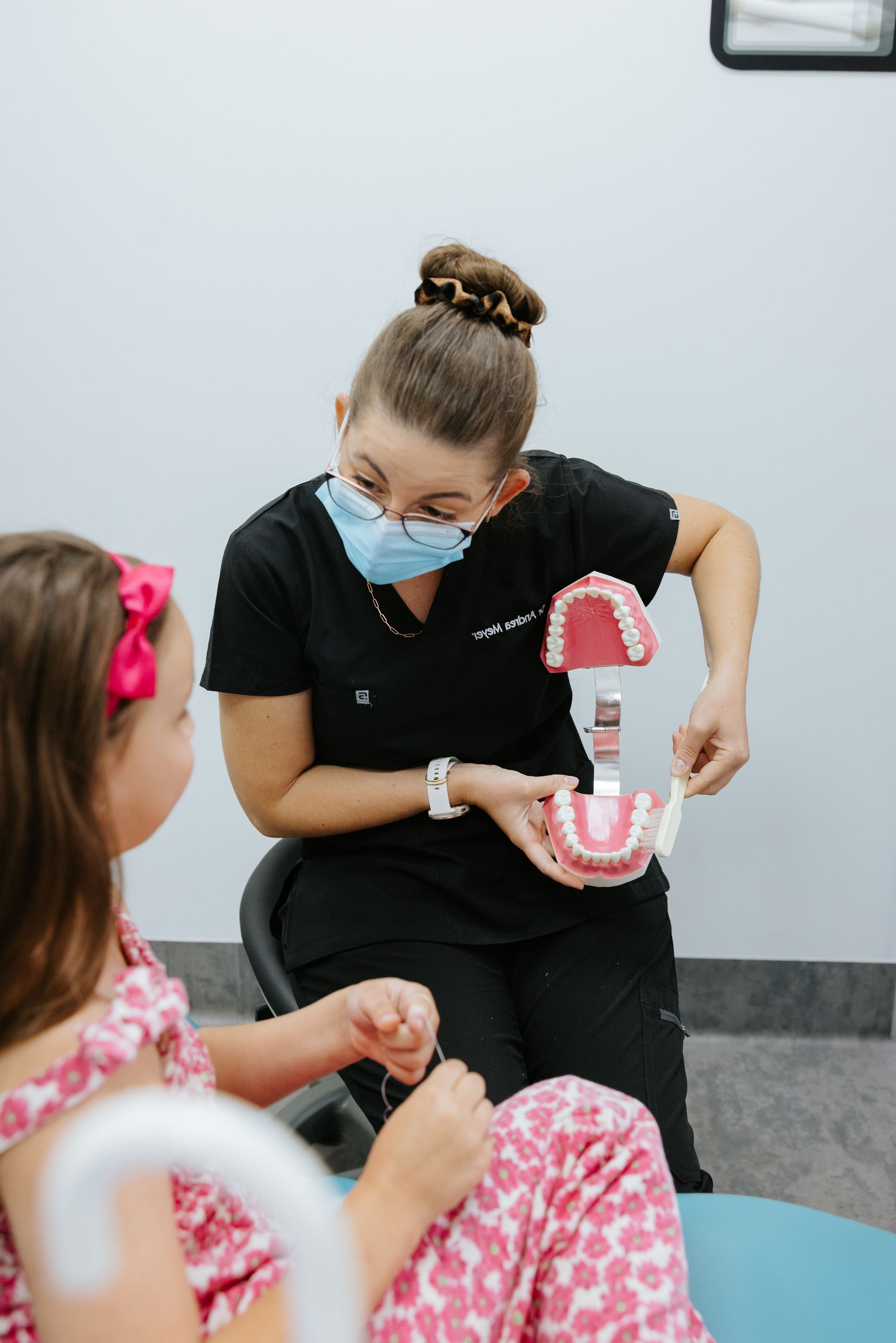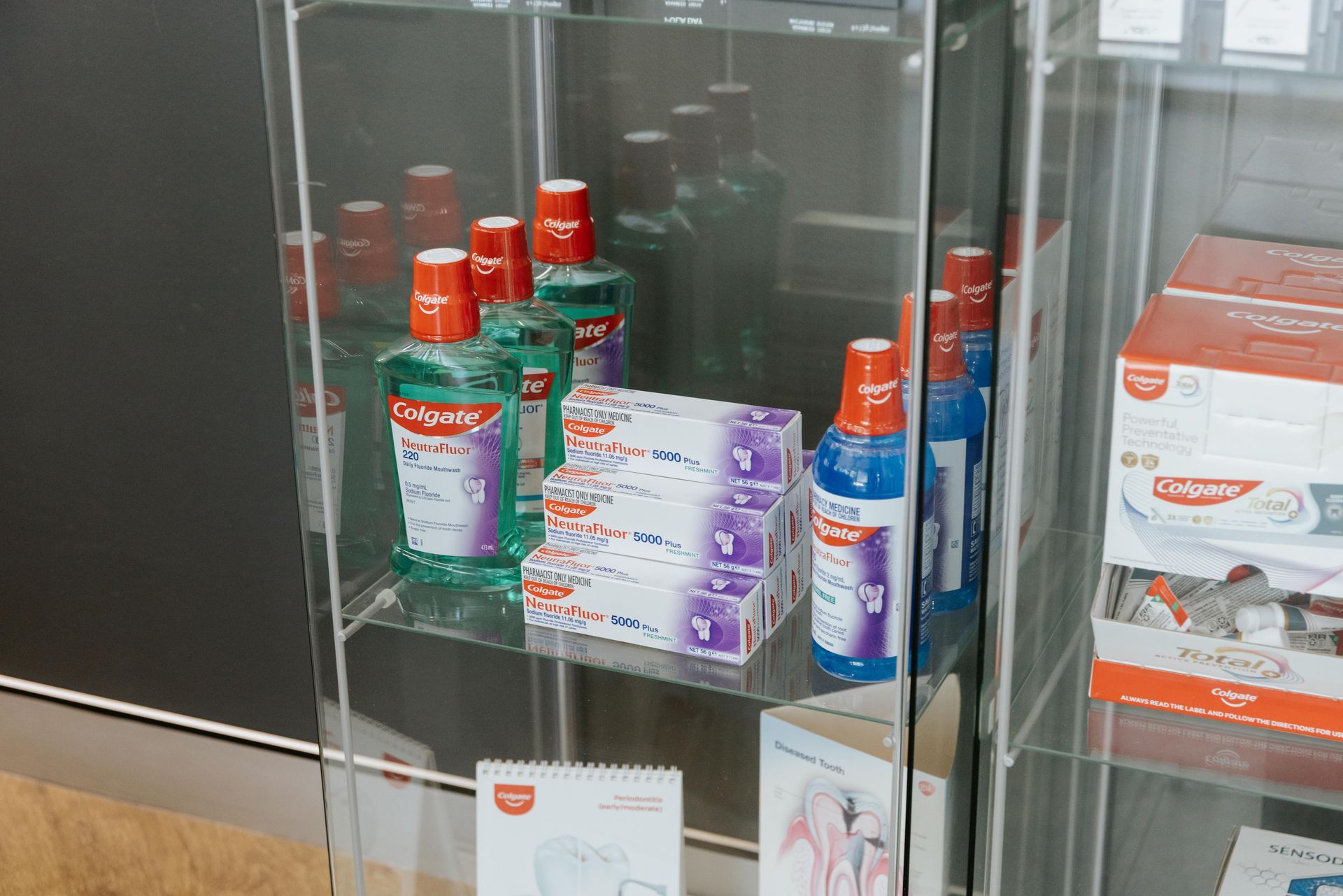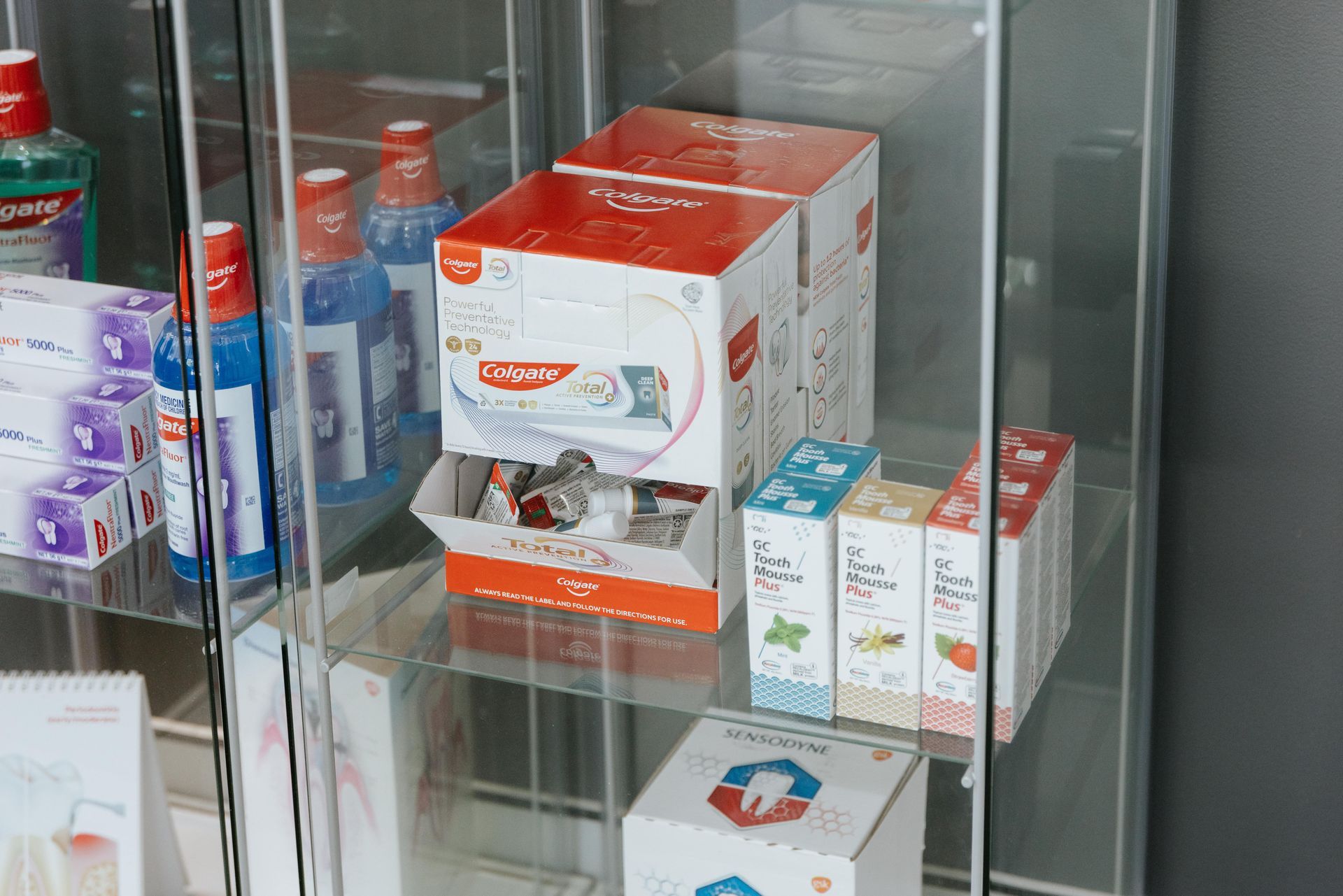Dental Work That Puts You First
No one looks forward to tooth pain, chipped teeth or cavities, but having a caring practice makes dental work less stressful. At McDonald Dental in Gympie, we offer everything from preventative exams to restorative treatments, children’s dentistry and emergency support when you need it most.
Think of general dentistry as the foundation for a strong, confident smile. Each service builds on the next to protect both your teeth and your overall wellbeing.
If it’s been a while since your last appointment, or you’re noticing discomfort, there’s no better time to book in. Call us on 07 5481 1203 today and take the first step toward healthier teeth.
Preventative Focus
General dentistry isn’t just about fixing problems, it’s about spotting them early. With routine check-ups, x-rays and cleans, you’ll stay ahead of cavities and gum disease, avoiding costly treatment later. Prevention today keeps your smile stronger for years to come.
Family-Friendly Care
From a child’s first visit through to adult treatments, our dental work adapts to every stage of life. Gentle, friendly appointments help children build confidence, while adults benefit from long-term support that maintains healthy teeth and gums at any age.
Complete Care
General dental work covers everything from check-ups and fillings to root canals and oral hygiene advice. Having all these services in one place means smoother care, faster treatment and the reassurance of knowing every aspect of your smile is covered.
Routine & Regular Check-Ups
Even the best brushing and flossing routine doesn’t replace clinical dental care. Regular dental check-ups let professionals spot issues early and stop them before they cause lasting damage. These visits usually include an examination, x-rays, cleaning and tailored advice.
Routine appointments also allow a dentist to keep an eye on changes like enamel wear, gum inflammation or small cavities, all of which are easier to treat when caught early. For many, these visits happen every six months, though the frequency depends on your oral health needs. Not only do check-ups help reduce the risk of pain and costly treatment, they also leave your teeth feeling fresh and clean. Prevention really is better than cure and dental check-ups are the foundation of prevention.
Filling Treatments & Advice
Tooth decay can sneak up on anyone. If cavities form, fillings are the most effective way to repair the damage and restore the tooth’s strength. Fillings are small but powerful; they can stop decay from spreading deeper and save you from future pain or tooth loss.
Some signs that you might need a filling include sensitivity to cold or sugar, pain when biting down or visible holes in your teeth. The great news is fillings are designed to be quick, effective and can blend seamlessly with your natural enamel. With the right after-treatment care, they can last for many years, helping keep your smile strong and healthy. Regular check-ups are key to spotting cavities early and treating them before they grow into bigger issues.
Our Root Canal Treatments
When tooth pulp becomes damaged or infected, the pain can be overwhelming. Root canal treatment is designed to save the tooth by removing the infected pulp, cleaning the inside and sealing it to prevent future issues. Despite its reputation, modern root canal therapy is often no more uncomfortable than a filling.
The alternative — leaving the tooth untreated — usually means increasing pain, spreading infection and, ultimately, tooth loss. Causes of pulp damage include deep cavities, fractures, trauma or long-term wear. Once bacteria reach the pulp, immediate care is needed to prevent serious complications.
Signs you might need a root canal include persistent toothache, sensitivity to hot or cold or swelling near the gum line. Acting quickly not only relieves discomfort but also helps preserve your natural teeth for longer. It’s a treatment designed to protect your smile while sparing you unnecessary pain and expense in the future.
Children's Dentistry
Early visits, even before all the baby teeth are in, help children get comfortable in the dentist chair and give us a chance to encourage healthy routines. With preventative care — like fluoride treatments and gentle cleans —we can reduce the risk of decay and teach your kids how to look after their teeth.
As children grow, regular check-ups help monitor the arrival of permanent teeth and spot concerns early, such as crowding or potential wisdom tooth issues. Parents also benefit from advice on brushing techniques, nutrition and routines that make oral care easier at home.
Eligible families can access the Child Dental Benefits Schedule (CDBS), which provides funding for essential services. With the right support, children learn that visiting the dentist isn’t scary; it’s simply part of looking after their health.
Are fillings painful?
Modern dentistry makes fillings a straightforward, comfortable procedure. Local anaesthetic ensures the area is numb before treatment begins, so patients typically feel little to no pain.
Afterwards, mild sensitivity may occur for a short period, but it usually resolves quickly with proper care.
When is a root canal necessary?
A root canal is needed when the tooth pulp becomes infected or damaged. Signs include severe pain, swelling or sensitivity that doesn’t go away.
The procedure removes infected tissue, relieves pain and saves the tooth, preventing the need for extraction or replacement.
At what age should children first see a dentist?
It’s recommended that children visit a dentist once their first tooth appears, usually by 12 months of age.
Early appointments help monitor growth, introduce children to the dental environment and provide parents with advice on caring for developing teeth and gums.
Get in touch with your dentist for any advice or concerns about your child's dental health.
Get in Touch
Thank you for contacting McDonald Dental.
We will get back to you as soon as possible.
Oops, there was an error sending your message.
Please try again later.




